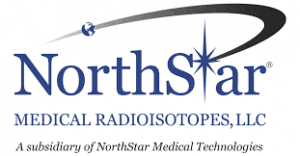In what’s being hailed as “a major milestone for nuclear medicine,”  has received a pair of high-tech machines that will be used to produce radioactive material used in millions of medical procedures each year.
has received a pair of high-tech machines that will be used to produce radioactive material used in millions of medical procedures each year.
The 24-ton particle accelerators arrived in Beloit Tuesday on flatbed trucks, capping a 5,700-mile journey from Belgium, where they were custom built for NorthStar.
NorthStar CEO Steve Merrick called the event “a really, really major milestone for NorthStar and a really major milestone for nuclear medicine.”
The machines will be used to make molybdenum-99, or Mo-99. The isotope decays into technetium-99m, which is used to detect cancer, heart disease and other conditions and is used in about 40,000 procedures in the U.S. every day.
NorthStar is one of five companies working with the U.S. Department of Energy to produce Mo-99 without the use of highly enriched uranium, which produces long-lasting toxic waste and is a component of nuclear weapons. The privately owned company backed by billionaire investor Diane Hendricks has received about $65 million in federal funding.
Another, SHINE Medical Technologies, broke ground in 2019 on a 54,000-square-foot facility in nearby Janesville, where the company expects to begin production by the end of next year using a different method.
Both are vying for a resurgent domestic production market of the time-sensitive isotopes after a severe shortage a decade ago brought to light the vulnerability of relying on imports from a few aging nuclear reactors.
“Given that this radioisotope decays away at 1% per hour, it’s kind of crazy making it thousands and thousands of miles away from the market you’re trying to serve,” Merrick said.
NorthStar is currently the only domestic producer of commercial Mo-99, which is currently manufactured at a research reactor in Columbia, Missouri, using a different process in which a neutron is added to molybdenum-98.



